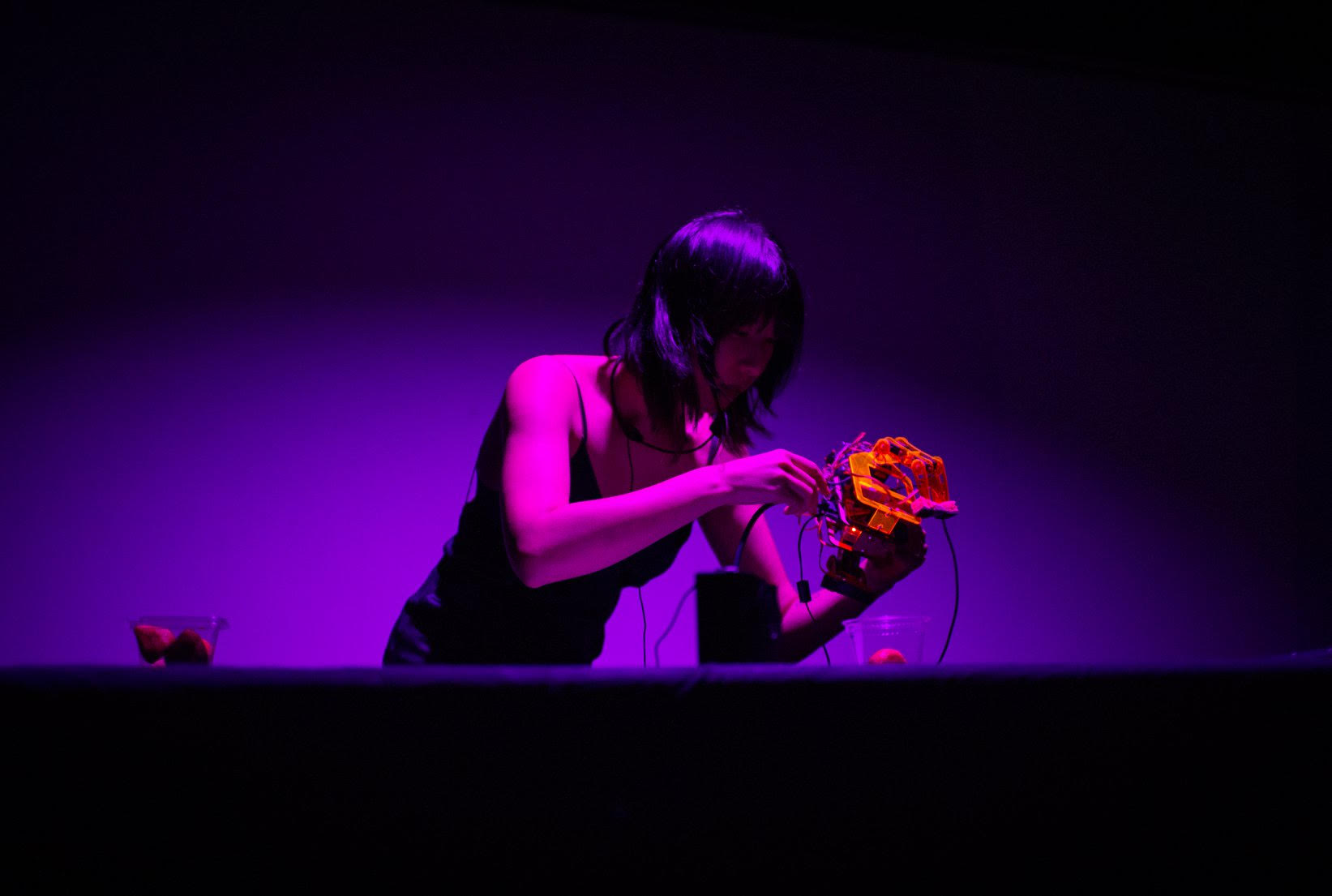
Maximal fantasy; minimal technology
I named my robot companion Gabriel2052. Its form and functions evolved constantly as I explored the individual and sociotechnical implications of various configurations of embodiment, motion, and presence by creating short narrative sketches involving audience participation and devised theater.
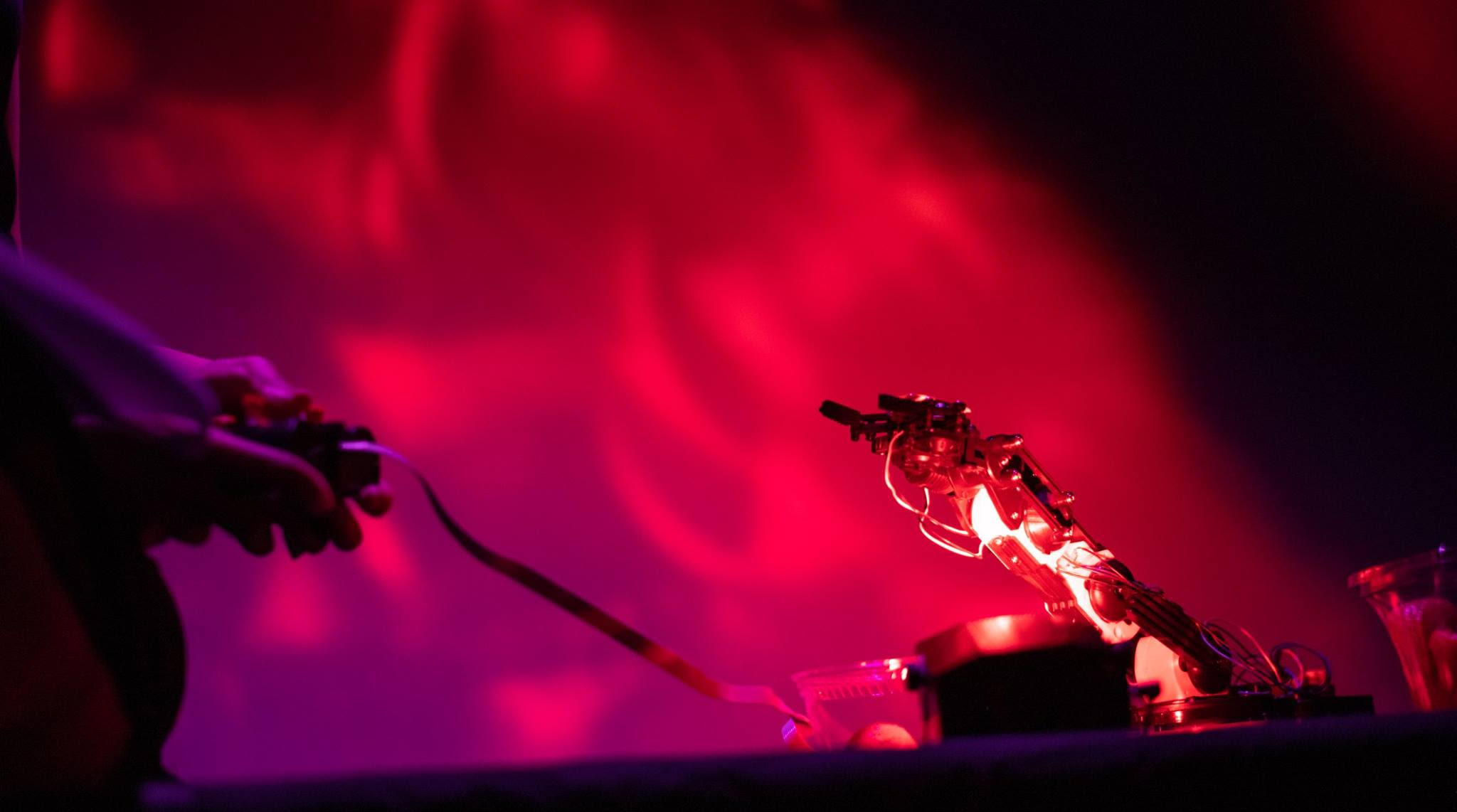
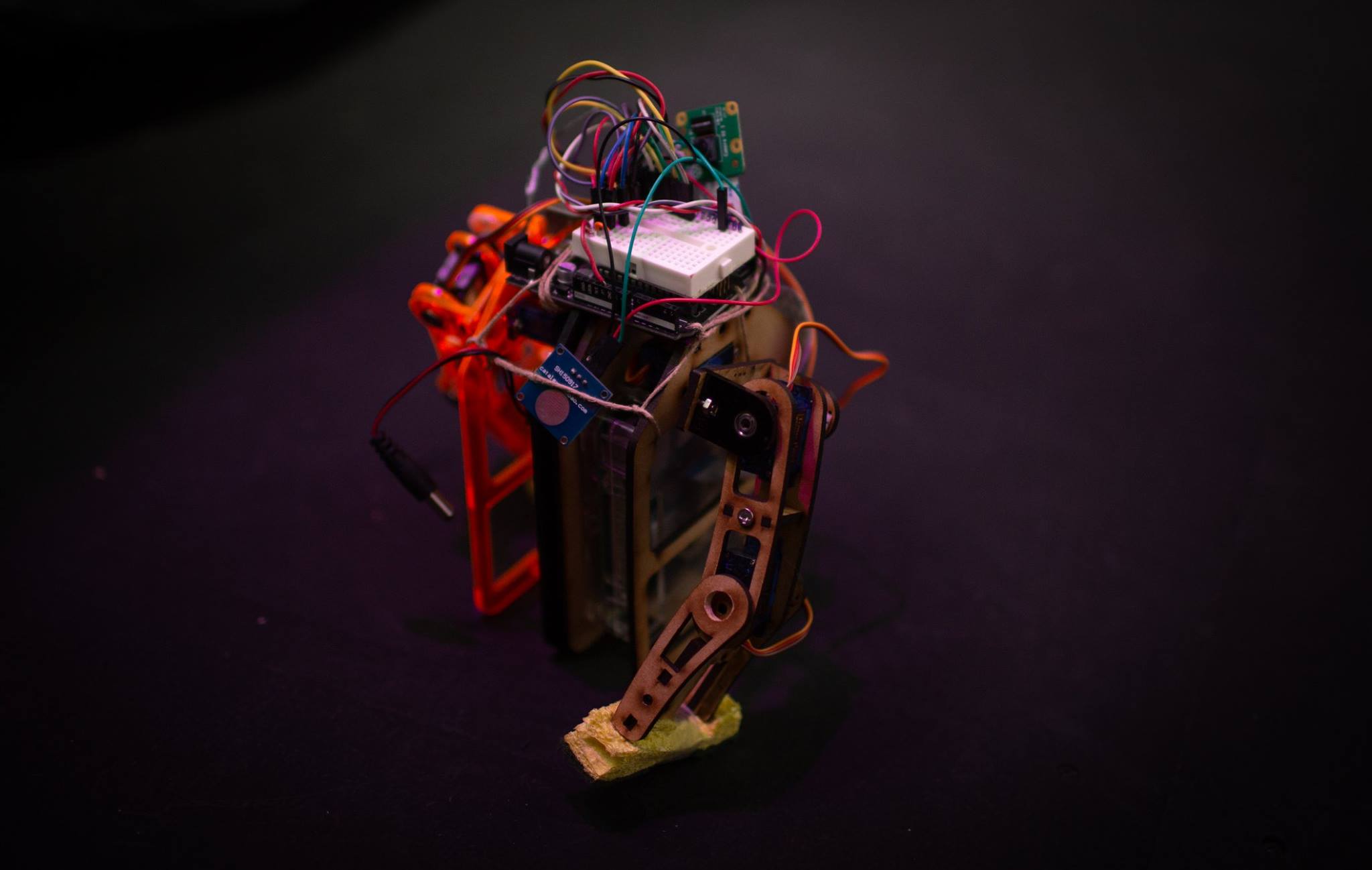
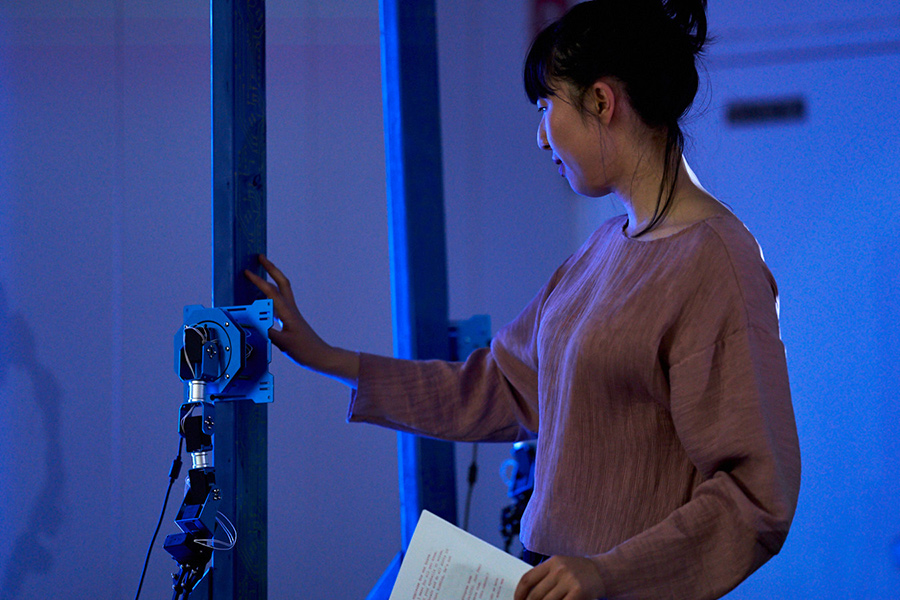
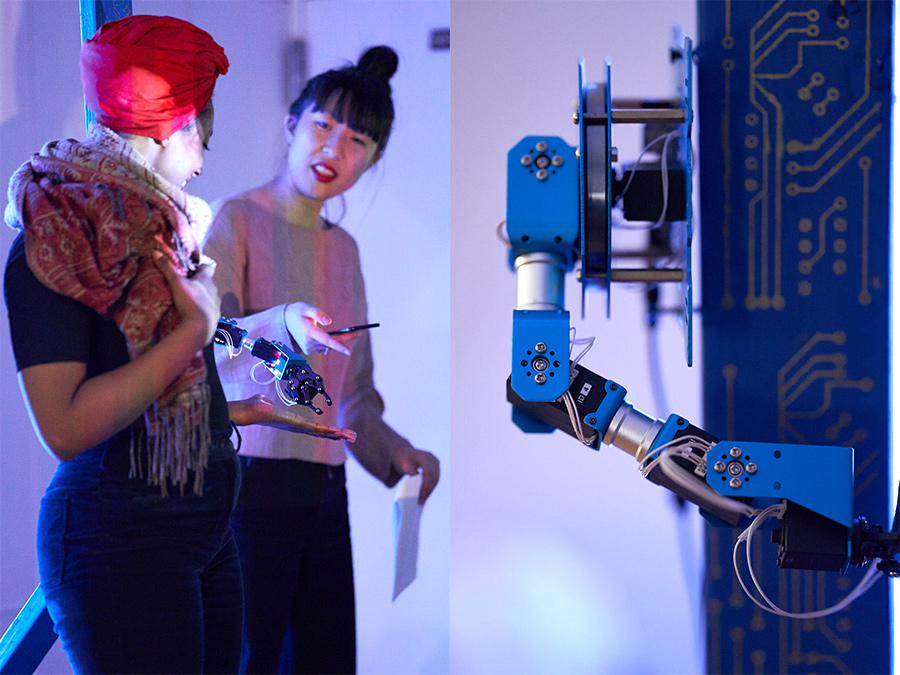
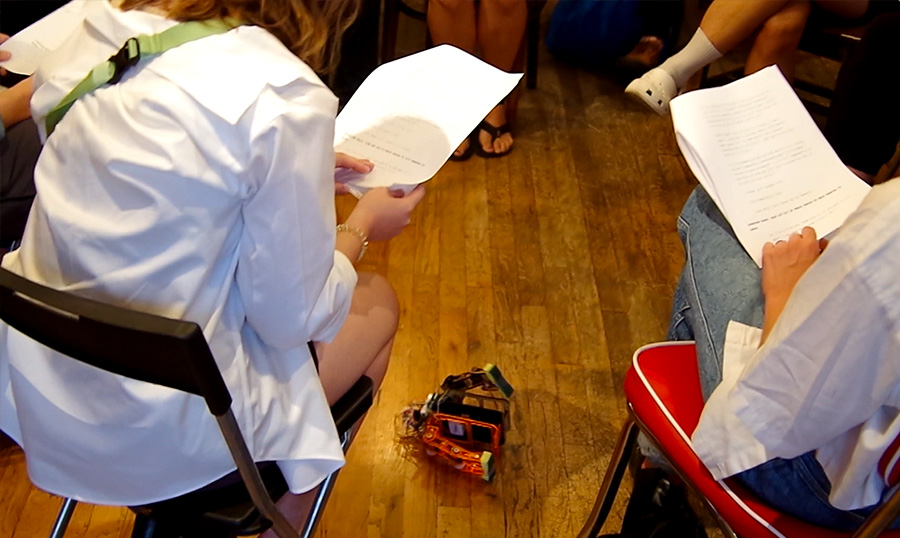
In 2017-18, the notion of “love” robots permeated the mainstream consciousness: AI-driven robots packaged with conversation skills, customizable settings from appearance to “personality”, and ready and willing to serve and fulfill (hu)man desires.
As a counterbalance and provocation, I created Gabriel2052 and three laws for a love machine:
A love machine does not need to be humanoid, but it must elicit and invite gestures of care.
A love machine will be built with using DIY principles and open-source technology. Knowledge is intimacy, and intimacy is powerful. Opening up a body and examining how its insides function is the possibly the most physically powerful gesture we as humans can commit. Knowing how automation and algorithms work in our lives is a close equivalent in the future.
A love machine doesn’t always obey. Healthy love between humans requires a person to say “no.” If love machines had as much independence as their human counterparts, would people still buy them? How could love machines be built to help their owners learn more about the complexities of navigating relationships with humans? What if there is a “three-strikes” rule, where after the third “no” is ignored, the machine goes into a defensive curl and stays locked? Could love machines have emotional ranges that go beyond “shy” or “caring” to feel frustrated, angry, defiant, mournful, or actually shed tears? Could the hardware and software actually enforce something like the Golden Rule: Do to others what you want them to do to you?
I wondered: Is jealousy, or other negative emotions, actually useful traits? Jealousy stems from lacking self esteem, which is part of the larger picture of practicing self acceptance and self love. If jealousy is a negative self image, then self love and self acceptance arrives at a positive one. If jealousy is loud and difficult to ignore, then self love and self acceptance is quiet and nearly invisible. If jealousy thrives off an attention-hungry vicious cycle, then self love and self acceptance can only be a virtuous one.

Pedagogy-performance
I used these themes as conceptual backdrops to teach workshops which introduced participants to simple Arduino programming. The first workshop where these ideas were tested took place during my residency at Akademie Schloss Solitude, where I stepped through the Arduino exercises while gradually revealing the speculative setting in which the workshop was taking place: the Arduino boards and motor parts used by the participants were harvested from discarded Gabriel2052 robots 50 years in the future.
I continued to explore this method, as well as other immersive lecture-performance formats, in later workshops and performances.